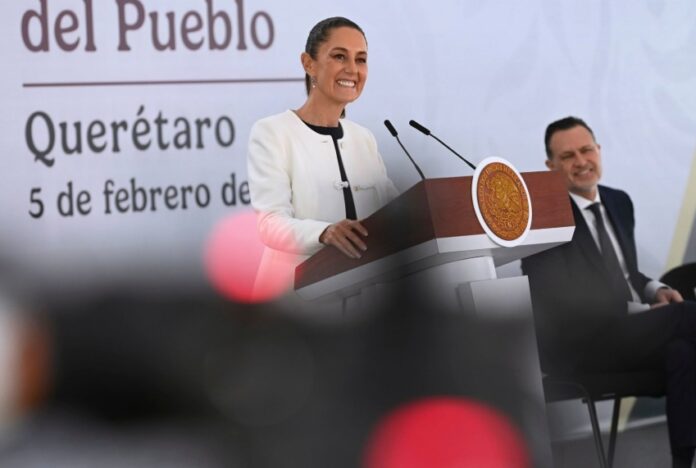President Claudia Sheinbaum held her Wednesday morning press conference in Querétaro city, located just over 200 kilometers northwest of Mexico City.
Sheinbaum told reporters that construction of the Mexico City-Querétaro passenger train line will begin in April.
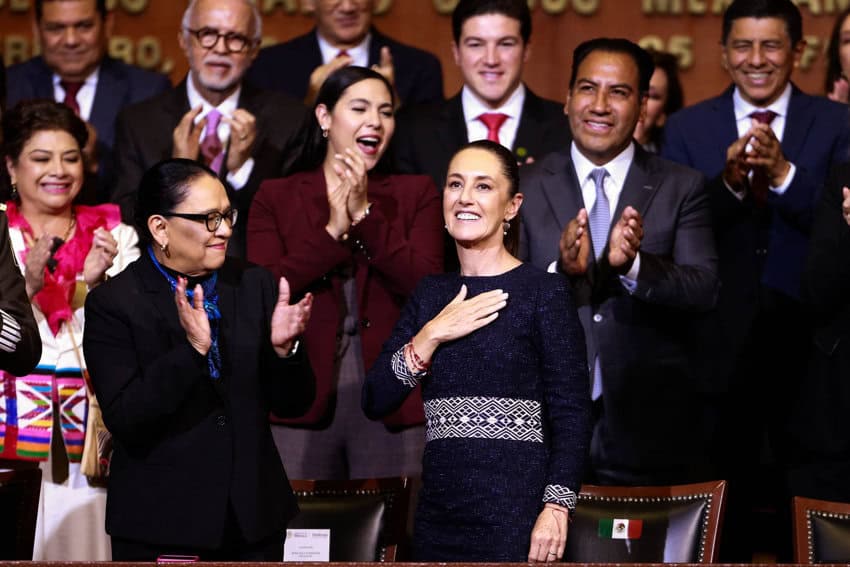
Among other issues, Sheinbaum also spoke about the deal she reached with United States President Donald Trump on Monday and the record amount in remittances that flowed into Mexico last year, mainly from the U.S.
Sheinbaum confident that tariff ‘pause’ will be permanent
Sheinbaum reminded reporters that the 25% tariffs Trump planned to impose on all exports from Mexico to the United States are now “paused” for one month thanks to the agreement she reached with the U.S. president.
“There is no need to be speculating about what will happen in a month,” Sheinbaum said regarding the Mexico tariffs.
“We trust we’ll have a good agreement with the United States government and that the issue of tariffs will remain the same…” Sheinbaum said, “… permanently paused.”
As part of her deal with Trump, Sheinbaum committed to deploying 10,000 of Mexico’s National Guard troops to the northern border to stem the flow of fentanyl to the United States. The deployment commenced on Tuesday.
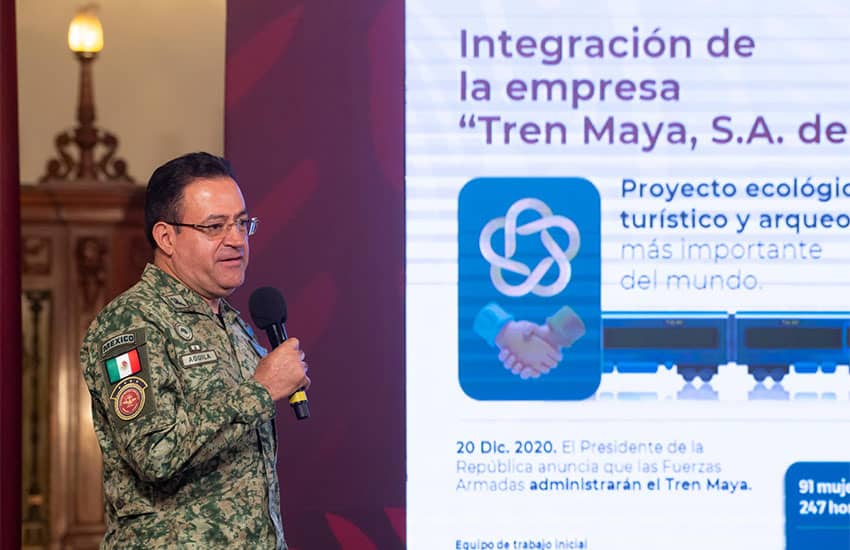
Military to build CDMX-QRO railroad
Sheinbaum said that studies are currently being undertaken ahead of the commencement of construction of the Mexico City-Querétaro railroad.
“Military engineers will develop it, the Mexico City-Querétaro project,” she said.
Sheinbaum said that construction will begin in April once all the studies, including engineering and environmental ones, have been completed.
She said that the estimated completion time is between two and a half and three years.
“It’s a project that we’ve wanted to develop for a long time, and we’re going to make it a reality,” Sheinbaum said.
The 2012–2018 government led by former president Enrique Peña Nieto made some progress toward constructing a high-speed railroad between Mexico City and Querétaro, but the project was postponed (effectively scrapped) in 2015.
Mexico will stop exporting oil when Tabasco refinery is at full capacity
Sheinbaum noted that former president Andrés Manuel López Obrador put forward a plan to refine in Mexico all the oil that is produced in Mexico, and to reach fuel self-sufficiency.
She highlighted that the construction of the Olmeca Refinery on the Tabasco coast and upgrades to Pemex’s other refineries supported that plan.
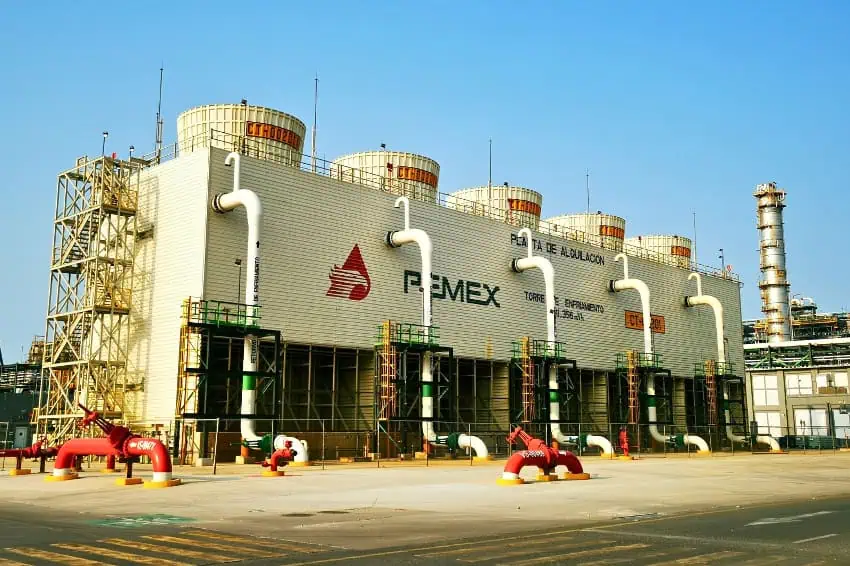
The previous federal government didn’t achieve its self-sufficiency goal during its six-year term, but Sheinbaum said progress toward that objective will be made this year.
“The Olmeca Refinery is finished. Today it has a small problem, as I said yesterday, with crude, problems of salinization, but it is finished,” she said.
“When it is operating at its maximum capacity, [or] practically, oil won’t be exported, it will all be for internal consumption,” Sheinbaum said.
“That gives us a lot of strength as a country,” she added.
The maximum refining capacity of the Olmeca Refinery is 340,000 barrels of crude per day.
López Obrador officially opened the multi-billion-dollar refinery in 2022, but processing of crude didn’t begin until 2024.
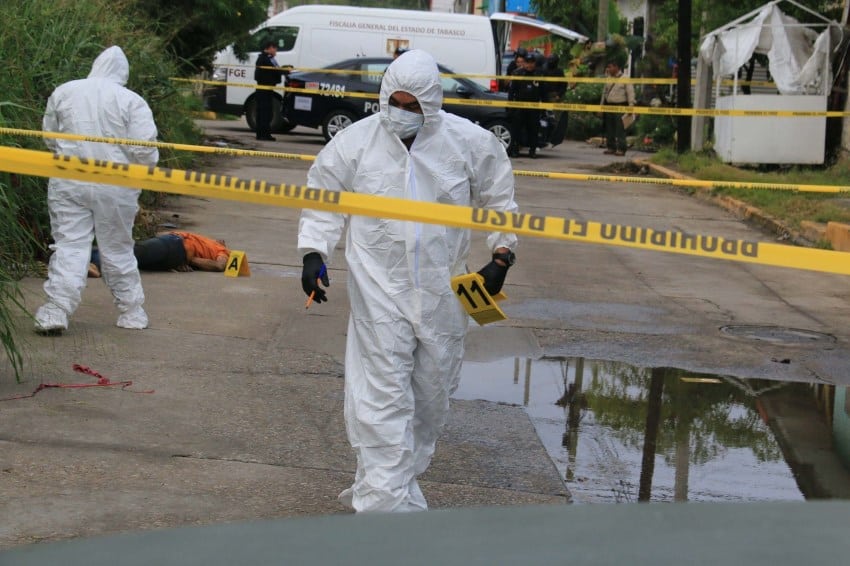
Security to be beefed up in Tabasco
Sheinbaum said that the government will soon announce a security “reinforcement” in the Gulf coast state of Tabasco, where violence has spiked in recent weeks.
She asserted for the second time in as many days that the deployment of additional National Guard troops to the northern border won’t “place at risk” security in the rest of the country.
At least 19 people were killed in Tabasco last weekend, according to Europa Press, while El Universal newspaper reported that there were 10 murders in the state on Tuesday, including seven in a prison.
Record remittances in 2024
A reporter noted that Mexico received a record-high US $64.745 billion in remittances in 2024, a 2.3% increase compared to 2023.
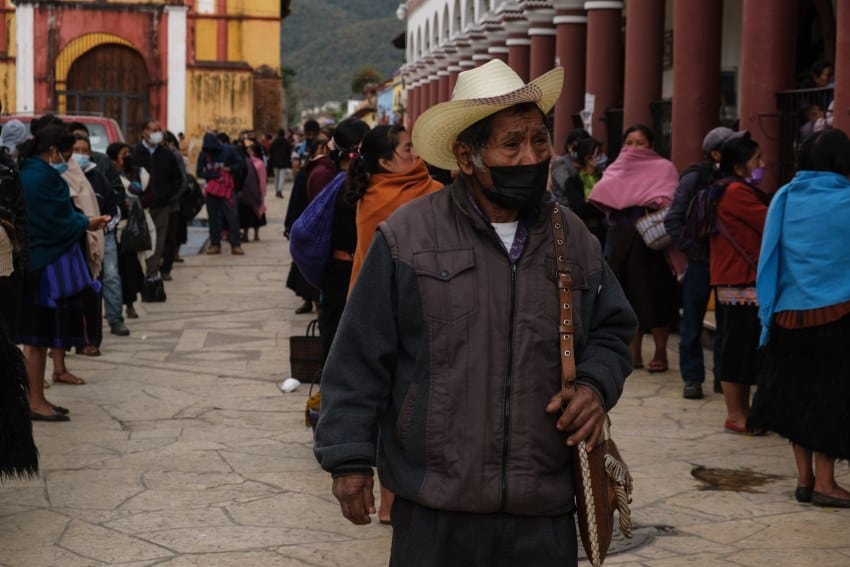
Sheinbaum thanked the Mexicans who live and work abroad and send money home to their families.
“The people of Mexico are supportive, fraternal. Families remain united, … the fraternity of the people of Mexico is unique and that’s reflected in the remittances,” she said.
Mexicans don’t go “there” — the United States — and forget about their families, Sheinbaum said.
“They support them permanently,” she said.
Sheinbaum, who is strongly opposed to Trump’s mass deportation plan, said that remittances sent to Mexico only account for 20% of the earnings of Mexicans in the United States.
“The [other] 80% remains in the United States. They’re extraordinary Mexicans who support a part of our economy, but more significantly they support the economy of the United States,” she said.
Mexico recognizes the state of Palestine, Sheinbaum says
A reporter asked Sheinbaum whether she would like to offer an opinion on Trump’s proposal for the United States to seize control of Gaza.
The president limited herself to saying that “Mexico has had a position for years … of recognition of the Palestinian state and at the same time [recognition of] the state of Israel.”
“… That is our position, and it has been the historic position of the government of Mexico,” Sheinbaum said.
By Mexico News Daily chief staff writer Peter Davies (peter.davies@mexiconewsdaily.com)
